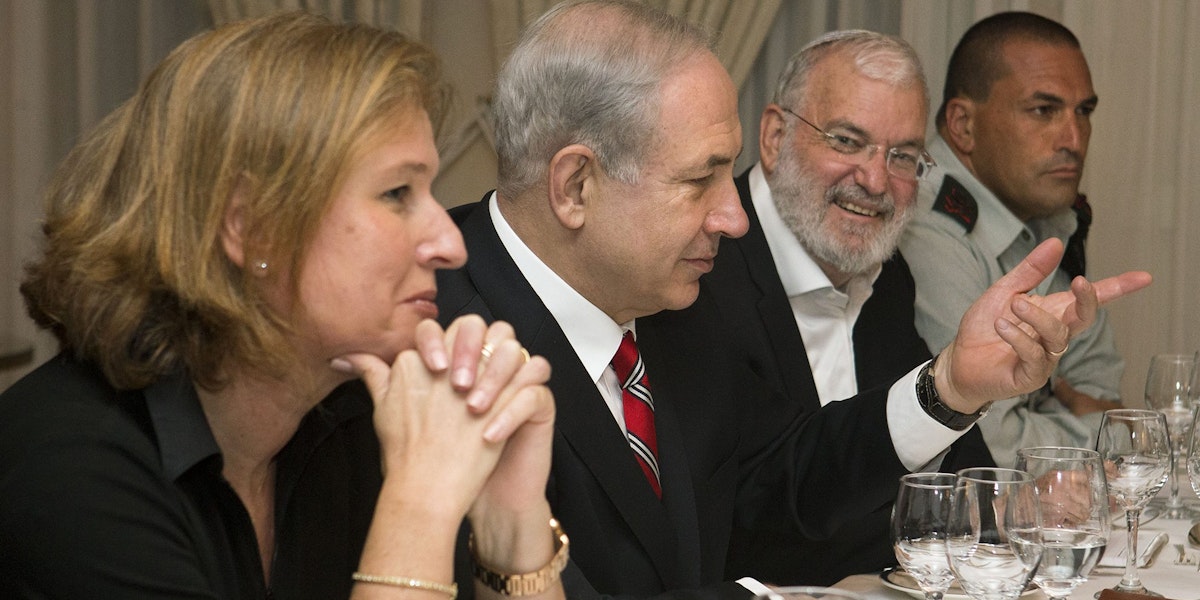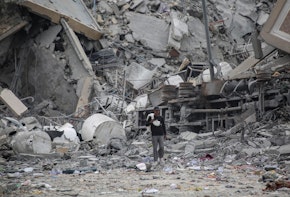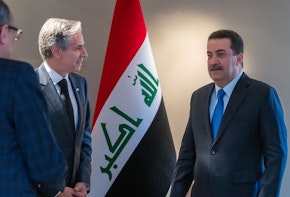If open talks between states are politically impossible, negotiators and their backers sometimes resort to “back-channel diplomacy.” When discussions focus on contentious issues, or avowed enemies are searching for a path to peace, back channels can offer a space to pursue unorthodox solutions and long shots, to build trust (or at least get to know one another), and to float ideas without major political or public consequences.
This report considers the question of back-channel diplomacy within the context of Israel and regional security in the Middle East. A brief outline and analysis of back-channel diplomacy shows why Israel and its Arab neighbors have made extensive use of such mechanisms throughout the history of their dispute. Indeed, for much of the previous century back channels have been the primary way that the leaders of Israel and its neighbors could hope to make any meaningful contact, beginning with contacts between leaders of the Zionist movement and of Jordan before Israel was founded, extending through contacts between Israel and Gamal Abdel Nasser’s Egypt in the 1950s and 1960s, through the Oslo talks between Israel and the Palestine Liberation Organization in the early 1990s, and to contacts today between Israel and various regional leaders. These channels may not have had warm communications, but their secrecy allowed discussions that never could have taken place otherwise.
Considering this history, reports of various ongoing security-related back channels between Israelis and people from key Arab states are hardly surprising. The interesting question is whether they portend a real change in regional relations. The violence of recent years in the Middle East—in Iraq, Syria, and Yemen, for example—has been so significant that in some senses it has overshadowed the Israeli-Palestinian conflict. Meanwhile, a host of new threats and risks have arisen, particularly surrounding the challenge that Iran’s regional ambitions pose both to Israel and to many Arab states. Could the time be ripe for back-channel discussions to facilitate a paradigm shift in regional security—for Israel and its neighbors to establish a new basis for normalization and a regional security architecture?
This report argues that although recent back channels present some interesting new opportunities, hopes for a dramatic breakthrough in regional relations are premature. Clearly, some Arab leaders are willing to discuss security cooperation or improved relations with Israel in private, but evidence suggests that these Arab leaders will not take any concrete action until the core problem of Palestine is resolved. Thus, despite attempts by some in Israel to portray these discussions as evidence that their country can achieve new relations with the region without having to confront the hard choices necessary to settle the Palestinian conflict, the reality remains the opposite. More broadly, the report argues that reliance on back-channel diplomacy sets something of a trap: secret talks provide the potentially dangerous illusion that leaders can manage relations in the short term without confronting the larger problems that must be solved for the region to progress toward a new pattern of relations. Nothing that can be accomplished in back channels is more important than breaking free of this trap; however, doing so will be as complicated as ever in the emerging political landscape of the Middle East.
Order from Ashes
This report is part of “Order from Ashes: New Foundations for Security in the Middle East,” a multiyear TCF project supported by the Carnegie Corporation of New York.
Back-Channel Diplomacy
The term “back-channel diplomacy” relates to talks between states, or states and substate actors, that are completely (or so participants hope) out of the public view and out of view of most of the bureaucratic and political structures of the states or actors involved. Back-channel diplomacy is thus a form of dialogue whereby those present are instructed by their governments but operate in strict secrecy. The key, then, is the question of whether the actors present are there under instructions from their governments, or at least from parts of their governments.1 The distinction is sometimes a fine one, and such “Track Two” and “Track 1.5” discussions can evolve into back channels if the governments involved decide that they should.2 (Track Two diplomacy is defined as “unofficial dialogues, generally between two antagonistic parties, and often facilitated by an impartial Third Party, and involving individuals with some close connections to their respective official communities, focused on cooperative efforts to explore new ways to resolve differences over, or discuss new approaches to, policy-related issues.”)3 Back channels can be facilitated by intermediaries or can be direct conversations between the parties; sometimes they will be both at various times.4
Governments often deny the existence of back channels even as they are happening. Proponents of such diplomacy regard such denials as essential, particularly when talks involve long-standing adversaries who have publicly stated that they will “never” talk to each other. How shall such states, or other groups, begin to explore whether a change in position might be possible if they would have to publicly repudiate a longstanding and widely held position to even begin such an exploration? Better, advocates would argue, to find a way to begin to talk that does not require such a climb-down before the sides even know whether a new relationship is possible.
Opponents of back-channel diplomacy charge that it is nothing more than another iteration of the secret deal-making between countries that they believe helped drive the collapse of the European system in 1914.5 In particular, if states have maintained that they will never talk to another group and if their publics have embraced this position as proper, it is profoundly undemocratic to secretly do so. The people, and other nodes of power in the states concerned, have a right to know what is going on and to be consulted before a fait accompli is launched on an unsuspecting public—and, for the insider opponents of whatever agreement is achieved through a back channel, before a fait accompli is launched on them. In practice, of course, those opposed to back-channel discussions are often not opposed to the actual idea of back channels, but rather to being excluded from a specific back channel or to the fact that a position they regard as sacred is being compromised in such talks.
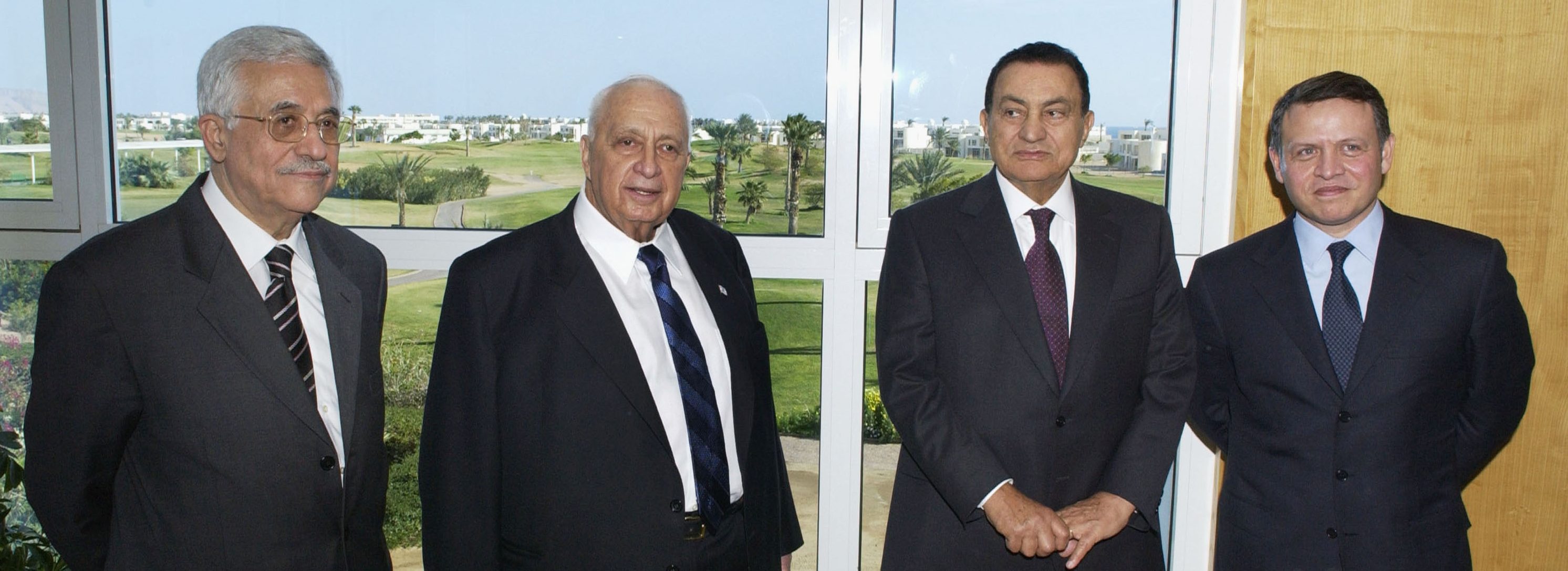
Though back-channel diplomacy is a widely acknowledged reality, its practice is not widely discussed. To some extent, this is because it is necessarily secret. Once a back channel becomes known, it is the results (or lack of them) and not the processes that become a source of public discussion and scrutiny.6 In other cases, back channels take place quietly and are never openly acknowledged. There are notable exceptions to this, and a small analytical literature has developed on back-channel diplomacy.7
Taken together, these analyses suggest that there are several main benefits of back-channel diplomacy. For one, it permits greater flexibility, as talks can begin and proceed without preconditions; in a sense, back channels can reduce the entry costs of a negotiation and permit brainstorming out of the public view. Second, as part of the above, back channels can provide an intimate opportunity for elites on both sides to get a more accurate measure of each other and what risks they are prepared to take to achieve a settlement. Often, in situations of longstanding conflict, each side feels it knows the other but in fact does not—the two sides have become captive to myths and narratives that present an image of the other, rather than the reality.8 Finally, back-channel diplomacy provides a degree of political cover, especially in cases where a leader is hamstrung by a longstanding commitment to “never” talk to the other side, either because the other side’s tactics are unacceptable or because there is a reluctance to formally recognize it.
Of course, balancing these pros are a considerable number of cons. The simplest problem occurs in cases where several back channels are operating, removed from each other or more open diplomacy. The existence of multiple channels, which are known to only a few, can generate significant confusion, particularly if they go on for a long time. Then, there is a danger that a back channel that was meant to be an end game becomes, in Anthony Wanis-St. John’s term, an “endless game”—a process whereby parties believe that they do not have to reach agreements because the negotiation is secret, and so they avoid confronting the deeper challenges.9 Sometimes this leads to incremental approaches: tougher issues are kicked down the road and one back channel begets another. And just as back channels can permit the beginning of a negotiation to avoid the problem of spoilers, they also can lead to a particularly vociferous mobilization of spoilers when their results become public, especially if this happens due to a leak.
Israel and Back-Channel Diplomacy
Given that Israel has spent much of its existence surrounded by unfriendly or even hostile countries—the majority of whom would not, until relatively recently, publicly talk to it—it has had to master the art of secret talks.10 Indeed, even before Israel existed, the Zionist movement excelled at such discussions. This approach has contributed to a sense in some quarters that Israel’s attitude to diplomacy is based on a culture that rejects the normal conventions of diplomatic conduct because of the particular threats and challenges that it faces.11
The years leading to the foundation of Israel saw intensive back-channel talks between Zionist leaders and the world powers of the day, and also between the Zionists and the leaders of neighboring Arab states. These discussions were aimed at either enlisting the aid of great powers for the Zionist project (often through leveraging the Zionist movement’s nascent human capital and intelligence resources)12 or trying to see if leaders of neighboring Arab states could be brought to support the Zionist project (or at least not oppose it).13 When the state of Israel was established in 1948, hopes that its neighbors would publicly talk to it were stillborn. Thus, in the early decades of Israel’s existence, its leaders relied significantly on clandestine talks and back channels, relative to the extent to which most states conduct the bulk of their foreign policy in the open. This extended to relations with other regional states14 and with world powers, such as the secret talks with Britain and France that led to the Suez debacle in 1956; and the most fundamental and far-reaching decisions on national security, such as the back-channel talks with France that began Israel’s undeclared nuclear weapons program, whose existence is officially denied by the Israeli government but is treated as a matter of fact by world and regional powers.
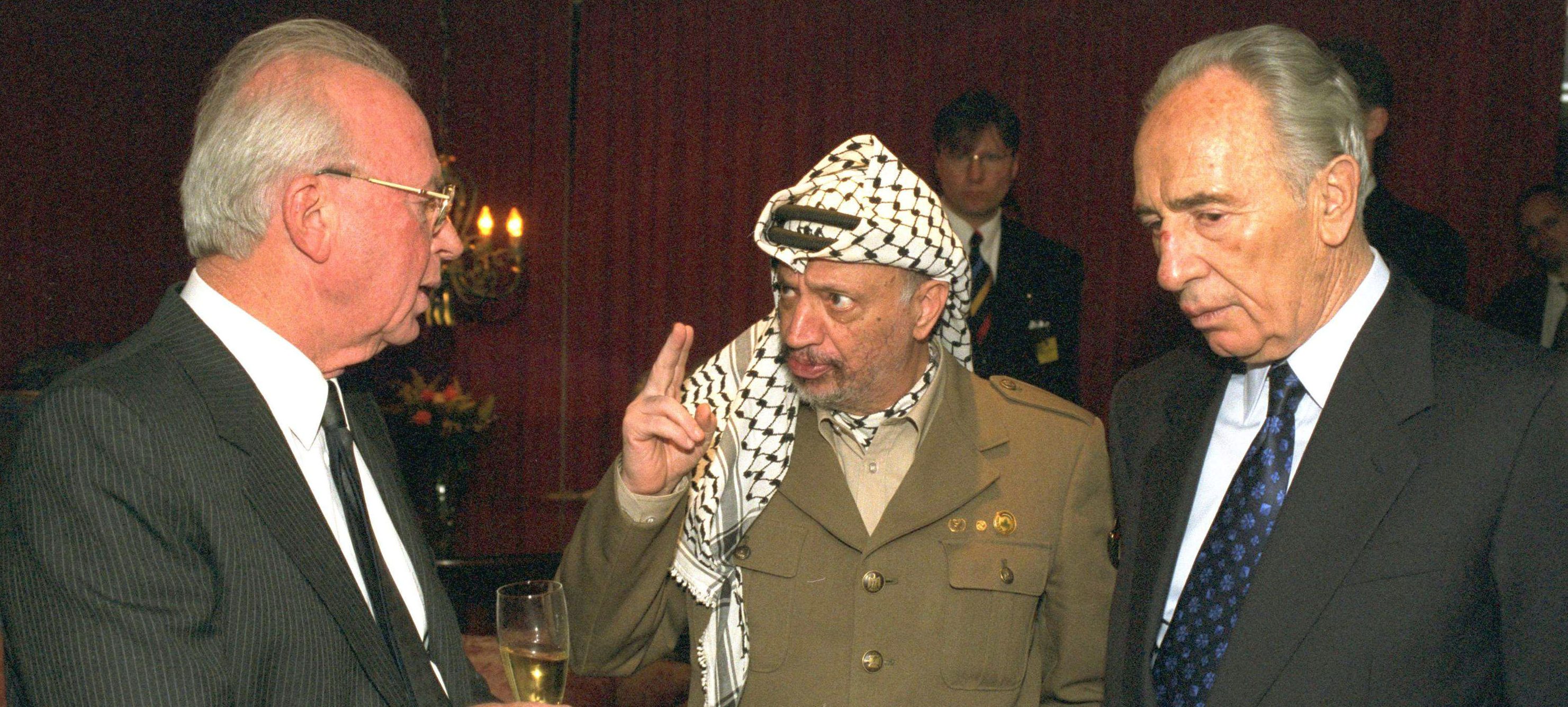
This approach has had several impacts, most of them negative. First, it necessarily “securitized” Israel’s foreign policy.15 Whereas the broader themes of foreign policy in a democratic society should—at least ideally—be discussed as part of the democratic process in which different imperatives are debated (such as economic, cultural, and other interests), Israel came to accept that a traditional and “hard” definition of security would govern the overriding approach to regional and international relations and that many key foreign policy decisions would be taken in secret by a small group of those privy to the secret discussions.16
Second, it introduced a strong element of opportunism into Israeli foreign policy. By necessity, Israel had to talk with those who would talk to it, even if secretly. Thus, the Israeli elite’s perception of who Israel’s “friends” are at any given moment is driven to a large extent by the ever-shifting constellation of those who would talk to it clandestinely. Since many of those who would do so in such moments were motivated by a sense of what Israel could do for them in terms of their other regional problems, a strong mentality of “the enemy of my enemy is my friend—for now” has crept into Israeli analysis and statecraft. All relationships, no matter how close, are generally based on the needs of the moment and subject to intelligence requirements, in particular. Even in the case of Israel’s most critical relationship, that with the United States, intelligence-gathering opportunities have led Israel into adventures that might not have been sanctioned had other voices been able to exert a greater influence on how they were assessed.17
Third, the need for secret channels to be kept secret has led to a high degree of reliance on Israel’s famed intelligence services, both civilian and military, as conduits of dialogue. This has relegated the foreign ministry to a lesser role in Israel’s foreign policy than is usually the case in most societies. Given the penchant of intelligence professionals to think in terms of the need to preserve secrets and to treat relationships as vehicles to trade clandestine information and capabilities for like, Israel’s relations have taken on a more secretive, “operational” (in the intelligence sense), and transactional aspect than might be the case in other democratic societies.18 Though some argue that this grip is weakening as other centers of interest, such as the business community and religious groups, are now coming to play a larger role in Israeli society and demanding a commensurate level of influence over security and foreign policy,19 to a great degree Israel remains a country where the intelligence services and the military influence its foreign policy.
It is easy to say that an overreliance on back-channel diplomacy is responsible for many of the ills that beset Israel’s foreign policy. In reality, given its situation, Israel’s approach to diplomacy likely could not have evolved otherwise. That being the case, however, a reliance on back channels has become a crutch on which various interests in Israel depend to avoid confronting difficult choices. Whatever the reason for it, the securitization of Israel’s approach to its region and relationships, along with the secretive, opportunistic, intelligence-oriented, and transactional character of many of its relations, particularly in the region, has significantly marked Israeli diplomacy. Even though Israel has been the dominant regional military and economic power for decades, its deeply held sense of threat has created a basic approach to security that holds that Israel can ultimately gain regional acceptance only by showing strength at all times, responding to all challenges in a disproportionate manner, and exploiting weaknesses. It may thus be said that a culture of making secret deals and using aggressive intelligence and military capabilities to open doors and curry favors marks Israel’s approach to diplomacy and regional affairs, again more than one sees in other democratic societies.
Indeed, Israel’s approach to diplomacy has come to be informed by a cultural sense that the “normal” conventions of diplomacy are not relevant to the Israeli situation and psyche, and in fact are antithetical to Israel’s ability to defend its interests.20 Just as the “Iron Wall” strategy is important to Israel’s physical defense strategy, many Israelis feel that eschewing conventional diplomatic approaches is important to their country’s pursuit of its interests. Israel’s diplomacy thus features a mixture between a penchant for publicly aggressive stances on key issues, in which it bluntly asserts its interests in contravention of diplomatic niceties, and a desire to conduct the “real” business quietly and through direct, secret talks between leaders. This approach depends on an ongoing assumption that most other regional leaders are hypocritical, in that they will secretly do deals with Israel while publicly stating that they are opposed to its existence. Although Arab leaders at times have fulfilled this assumption on specific issues, they have yet to compromise on their key positions on such matters as the Palestinian issue.
Nevertheless, the back-channel approach not only fits Israel’s history and circumstances, but also is useful in terms of navigating the realities of Israeli domestic politics. Quiet talks allow Israeli leaders to consider compromises that might not be acceptable to their key constituencies in Israel’s deeply fractured domestic politics. Indeed, throughout Israel’s history, secret talks have permitted consideration of ideas that were at odds with what various Israeli leaders publicly proclaimed they would never do—be it negotiating with “terror” groups over prisoner swaps; exploring whether recognition of the Palestine Liberation Organization might be possible; or quietly discussing how Jerusalem, the ostensibly indivisible capital of Israel, might be divided. Yet even though clandestine talks may have been necessary at various times in Israel’s history, they have helped create an approach, particularly on the Israeli right, to politics and diplomacy that features a corrosive contradiction: a domestic political requirement for public statements and rhetoric that aggressively defend zero-sum positions on highly emotive issues, paired with a recognition that compromises on those same issues will be explored in secret. More often still, accusations that such secret talks may be happening inflame the Israeli political scene.
The result is a series of shocks to the Israeli political system, such as the one that greeted the Oslo breakthrough when it was announced in the early 1990s. Hard-line, supposedly nonnegotiable positions so often have been secretly negotiated that this system is permanently suspicious that such talks may be going on all the time on virtually all issues. In this way, back-channel talks, which are for most countries an exceptional expedient, are for Israelis a highly contested regular feature of political and diplomatic life. The existence or alleged existence of such talks is routinely debated and used for domestic political purposes, even as they go on secretly. The results of such talks, if they are achieved, then become fodder for Israel’s ongoing debate over critical security issues.
Thus, instead of being a rarely used way to achieve breakthroughs, real or alleged back channels have become a part of Israel’s political currency; a way for different political leaders and parties to intimate that various objectives can be achieved, but only by them and only in secret.21 Above all, back channels appear to suggest that understandings can be reached on many issues of Israeli foreign policy—understandings that will return benefits to Israel without requiring the conventions or trade-offs of formal agreements.
Back Channels and Regional Diplomacy: Past and Present
More broadly, if Israel is no stranger to back-channel talks, then the Middle East as a region is no stranger to the phenomenon of having its borders, political futures, and security systems settled in secret. During World War I, an interlocking and contradictory series of secret deals between Britain and the Zionist movement, Britain and certain Arab tribes in revolt against Ottoman rule, and Britain and France effectively carved up the region into spheres of influence and set in motion dynamics that are still playing out today. Of these, the Anglo-French deal, known as the Sykes-Picot Agreement, has had a particularly long-term impact in terms of the borders and political order of the Middle East.22 In the century since Sykes-Picot and the other secret negotiations of that period, the Middle East has seen numerous instances of back-channel diplomacy.
Present-day discussions between Israel and various Arab states on security matters should be assessed in the context of this history of regional actors attempting to use back channels for different reasons over many decades. Reports have been surfacing with regularity over the past few years of discussions on new approaches to regional security between high-ranking Israelis (both officials and retired officials) and well-connected figures from Saudi Arabia and other Arab countries.23 Privately, Israeli officials and others involved have indicated that a much larger set of talks has been going on for some time, and intensive but quiet cooperation is also underway on different issues.24
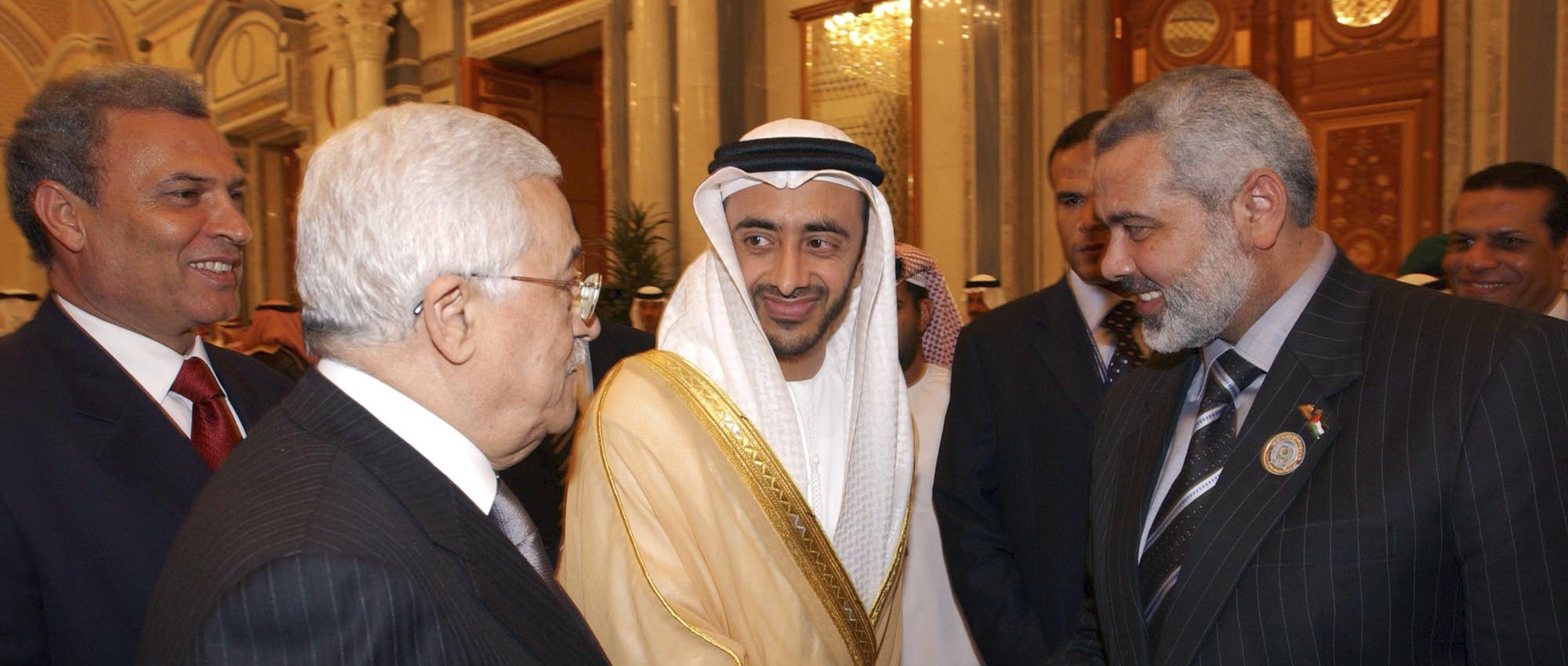
Perhaps the greatest single driving force for these discussions over the past few years is the combination of a growing concern within several Arab states, especially among those of the Persian Gulf, over the perceived regional ambitions of Iran, and growing fears that the United States may not be the reliable security ally those countries traditionally have perceived it to be. In particular, Saudi Arabia is reputedly concerned that the United States, fatigued by years of war in Afghanistan and Iraq and suffering an unusually high degree of internal political paralysis, may not be prepared to stand up to what Riyadh fears are Tehran’s hegemonic ambitions. In this context, the determination of Barack Obama’s administration to achieve a deal over Iran’s nuclear program—a deal that requires Iran to cease nuclear weapons research, but not to abandon altogether the knowledge or progress it has made to date—is said to have angered and alarmed both Israel and many Gulf states. Arab states, in addition to valuing Israel’s military prowess should it ever come to a fight with Iran, may believe that Israel can exert pressure on the United States to remain committed to its security in a showdown with Iran; even if America might hesitate to defend them, it would never hesitate to defend Israel. If those Arab states could somehow link their security to that of Israel, the thinking goes, the United States would have to intervene on their behalf with the same alacrity it would demonstrate to defend Israel. It will be interesting to see if President Donald Trump’s vocal opposition to the Iran nuclear deal will assuage Saudi concerns over the United States’ steadfastness. One would think that, in the wake of Trump’s high-profile visit to Riyadh, Saudi leaders would be reassured—and that the discussions with Israel would thus lose some of their attractiveness. But Riyadh may reason that whereas American presidents come and go, the back channel to Israel is a long-term investment, even if the extent to which it will be publicly acknowledged may wax and wane.
Thus, beyond concerns over America’s future steadfastness as a military ally, the Arab regimes who are seen as prepared to talk with Israel over security matters may be motivated by a deep sense that Iran poses a long-term threat to the region’s religious and sectarian order. In particular, the so-called Shia-Sunni split between the different traditions of Islam—over which Iran and Saudi Arabia, respectively, claim leadership—is a cause of concern for both Israel and Sunni states. Iran’s significant and largely sectarian involvement in civil wars and unrest in Iraq, Lebanon, Syria, and Yemen has raised fears of a long-term strategy on the part of Tehran to undermine the stability of the Sunni Arab world. Both the concerns that the United States would not protect its Gulf allies in extremis and that Iran poses a threat to the Sunni Arab order may well be overstated. But if they are perceived to be real, that is what matters.
Importantly, the vision of security that is reportedly being explored in these back-channel discussions is very much an adversarial model, whereby a group of states (in this case, Israel and several Sunni Arab states) band together to deter and even defeat, if necessary, a commonly held enemy (Iran). It is not a broader, more cooperative vision of security in which all countries of the region, even those that disagree with each other, try to come together to develop a set of regional norms and then work to enact them in ways that would reduce tensions. In this sense, Israel and its discussion partners are apparently pursuing, through back channels, an understanding on a form of “collective defense” rather than what is often known as “common security.”25 This distinction has the effect of making the cooperation that is being contemplated between Israel and various Arab states not so much a vision of fundamentally altered relations between them, or within the region, as a vision of a relationship of convenience to deal with a specific problem—without necessarily changing the basic relations between Israel and its partners.
Of course, none of this is new. Discussions of various kinds of regional security systems have been underway for decades in the Middle East.26 Beginning with the official discussions that were part of the multilateral track of the 1991 Madrid Peace Conference (known by the acronym ACRS, for Arms Control and Regional Security), and through several iterations of Track Two discussions, various ideas for a regional security system have been debated off and on for many years.27 These dialogues have tended to break down into two categories: those that have posited the idea of a region-wide cooperative approach to security, and those that have suggested various approaches to collective defense arrangements instead. Of the latter, some have advocated ideas of region-wide arrangements and others have suggested that subregional approaches should be taken in the first instance, often centered on the Gulf.28
The recent back-channel talks appear to support the latter category of discussions—seemingly aimed at advancing a collective defense type of arrangement or understanding between Israel and certain Arab states. (Of course, such an arrangement or understanding would not be publicly acknowledged, much as many of the defense arrangements between various European states prior to 1914 were based on secret understandings.) However, though some involved in the discussions might hope that the common interest in deterring Iran might lead to broader relations between Israel and key Arab states, there seems to be little indication that Saudi Arabia and others are willing to fundamentally alter the basis of their relations with Israel as long as the fate of the Palestinian issue remains unresolved. Indeed, at least some of those involved in the recent discussions that have come to light have specifically said that they do not expect official relations to be achieved unless the Palestinian question is resolved.29 Thus, even though some from Saudi Arabia and other regional states may be prepared to talk quietly to Israelis about commonly perceived security challenges, a resolution of the Israeli-Palestinian dispute remains the key to a real rapprochement. Such a resolution is the basis of the so-called “Arab Peace Initiative,” the five-hundred-word Saudi proposal first released in 2002 and repeatedly endorsed by the Arab League.30
If this characterization of the recent discussions is true, Saudis and others may view back-channel talks with Israelis over security—discussions that are mostly secret but occasionally alluded to publicly—as a sort of insurance policy. Such quiet talks, and the periodic hints that they are happening, make it known to both Washington and Tehran that Riyadh has other security options. But Saudi refusal to embrace official discussions with Israel serves to maintain Riyadh’s commitment to the idea that its key positions will not change until wider political goals are achieved—in this case, the position that full relations will not be established with Israel until the Palestinian issue is resolved.
On the other side of the table, for the Israeli right wing, public hints of back-channel talks with Saudi Arabia and others also play useful roles. Israeli politicians can convey to the public that relations with adversaries are possible through the tried-and-true practice of quiet, transactional discussions so favored by the Israeli security establishment and familiar to the Israeli people. This conforms to Israel’s history of such dialogues. Most important, such dialogues enable those in Israel who do not wish to take the steps required to resolve the Palestinian issue, including concessions on land and Palestinian statehood, to indicate to their political base that, yet again, “the Arabs” are willing to talk to “us” about serious issues without insisting that the Palestinian question be addressed.
Conclusion
Reports of back channels between Israelis and representatives of Arab states over security issues must be seen in various lights. Actual binding security arrangements seem a long way off, but the talks themselves, and periodic public hints at their existence, serve wider regional and domestic purposes for both sides. For Saudi Arabia, they remind both the United States and Iran that the Kingdom has other options with respect to its security—options that do not require it to fundamentally compromise on basic positions concerning the Palestinian conflict or relations with the United States. For Israel, they allow those who oppose the painful compromises required to resolve the Palestinian issue to hint that such compromises are not necessary for Israel to enjoy quiet but meaningful relations with other powers in the region—as has been the case for decades.
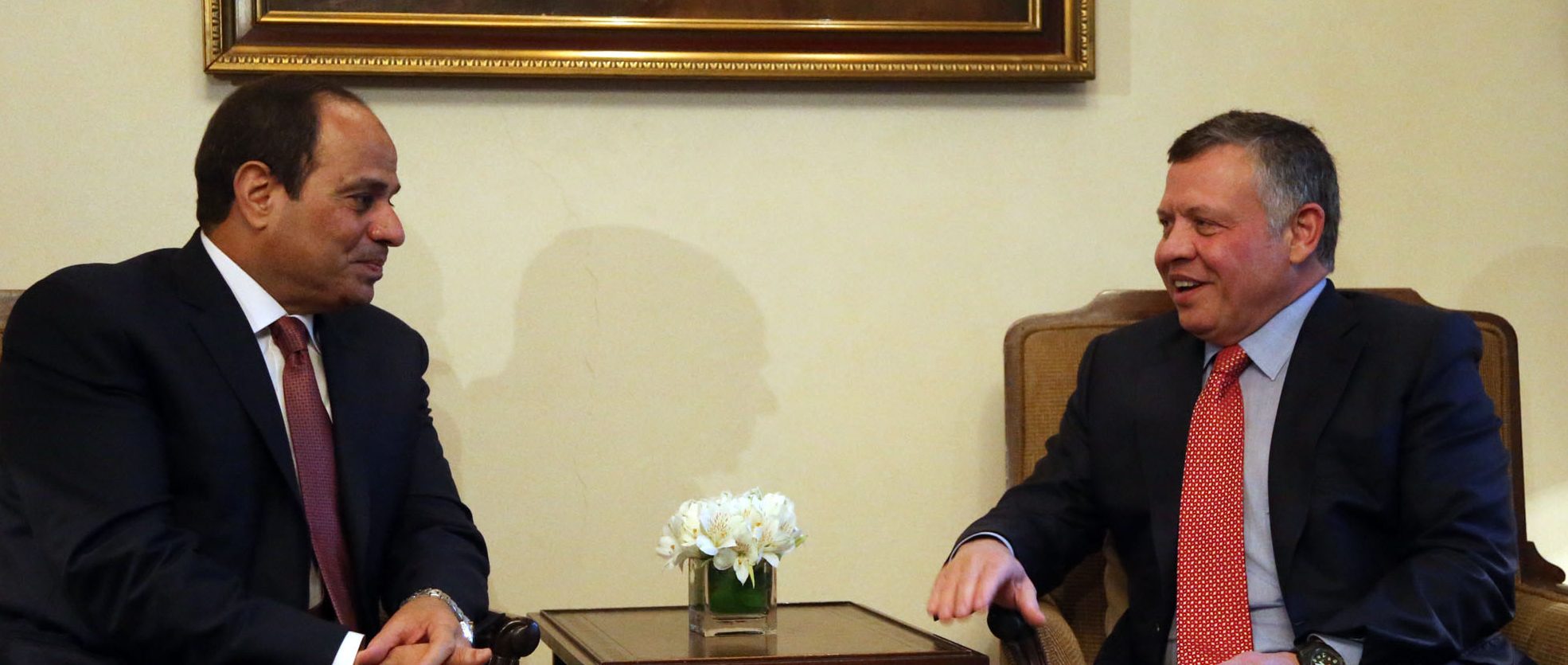
The reality is that the actual security benefits of the discussions, which likely are rather minimal, are not the point for either side. Back channels are being employed for many reasons, mostly having to do with strategic public relations, domestic politics, and signaling to different audiences. Back-channel diplomats may have little serious expectation that their talks will fundamentally change relations between Israel and its neighbors. Even at its most expansive, this kind of back-channel diplomacy has specific aims—for instance, the exploration of collective defense understandings against a common rival (Iran), rather than discussion of common security systems as part of building a new regional relationship. Thus, it is somewhat naïve to hope that the current secret back channels will transform the security landscape of the Middle East. Indeed, Israel and its neighbors have a long history of often using back channels to preserve a tolerable level of stability while procrastinating on the bigger issues. Nearly a century of back-channel diplomacy, conducted first by Zionists and since 1948 by the Israeli government, has usually produced relatively minimal concrete results for much of its history. Prospects are even dimmer in the current era, when Israel needs political buy-in from its public and elites to push through policy changes. Back-channel diplomacy is in danger of becoming an end in itself.
Thus, back-channel diplomacy in the Middle East in general, and for Israel in particular, continues its by-now traditional role: allowing specific elites to take short-term tactical steps to meet new challenges, while avoiding the need for difficult compromises on the central issues—compromises that would require changes in positions that might in turn imperil their leadership. Admittedly, this is a highly cynical analysis. Looking forward, however, it is difficult to see how the region’s reliance on back-channel diplomacy of this sort can be overcome anytime soon, in the absence of a change in leadership in several regional countries and in Israel. Back channels have become too ingrained in the warp and weft of the region’s diplomatic culture. Perhaps all of this is the inevitable reality of the region, but it is worth noting even as it unfolds. At the least, the pious statements of those involved in such back-channel talks that they are forging a new regional reality need to be scrutinized with a jaundiced eye.
Cover Photo: Tzipi Livni, Israel’s chief negotiator with the Palestinians (L) sits next to Israel’s Prime Minister Benjamin Netanyahu, with Yaakov Amidror, National Security Advisor to the Prime Minister, and Military Secretary Major General Eyal Zamir, as Netanyahu meets with U.S. Secretary of State John Kerry (unseen) in Jerusalem on June 29, 2013. Kerry kept up his frenetic Mideast diplomacy shuttling again between Palestinian and Israeli leaders in hopes of restarting peace talks. Source: AFP PHOTO/JACQUELYN MARTIN-POOL.
Notes
- As Anthony Wanis-St. John defines back channels, they are “officially sanctioned negotiations conducted in secret between the parties to a dispute.” See Wanis-St. John, “Back-Channel Negotiation: International Bargaining in the Shadows,” Negotiation Journal 22, no. 2 (2006): 119.
- There is some confusion as to whether back-channel diplomacy and Track Two diplomacy are the same thing. This report argues that they are not, though there may be overlaps, particularly as Track Two diplomacy approaches Track 1.5. The crucial distinction is that most Track Two efforts involve nonofficial elites who have influence within their societies but who are not operating under instructions from government and are exploring new ideas in situations of confidence in hopes of developing new thinking and passing it back to those who can use it. For more on Track Two diplomacy, see Peter Jones, Track Two Diplomacy in Theory and Practice (Stanford, Calif.: Stanford University Press, 2015).
- Jones, Track Two Diplomacy, 24.
- In cases where intermediaries are used, one role they play is what Dean Pruitt calls “communication chains”—actors who permit indirect communication, particularly when a back channel is in its infancy and the risks attending exposure are at their greatest. See Pruitt, “The Tactics of Third Party Intervention,” Orbis 44, no. 2 (2000): 245–54. For more on the issues that confront intermediaries in back channels, see Niall O’Dochartaigh, “The Role of an Intermediary in Back-Channel Negotiation: Evidence from the Brendan Duddy Papers,” Dynamics of Asymmetric Conflict 4, no. 3 (2011): 214–25. Duddy was a businessman from Derry in Northern Ireland who had extensive contacts with the Provisional Republican leadership and acted as a go-between from them to the British government over several decades. Another who played this role was a Catholic priest, Father Alex Reid. More on Duddy and Reid may be found in Eamonn Mallie and David McKittrick, The Fight for Peace: The Secret Story Behind the Irish Peace Process (London: Heinemann, 1996). Of course, Duddy and Reid were not the only ones to play this role during the conflict in Northern Ireland.
- For views on what was called at the time and for some years after “secret diplomacy,” see A. Maurice Low, “The Vice of Secret Diplomacy,” North American Review 207, no. 747 (1918): 209–20; Paul S. Reinsch, Secret Diplomacy: How Far Can It Be Eliminated? (New York: Harcourt, 1922); Konni Zilliacus, Mirror of the Past: A History of Secret Diplomacy (New York: Current Books, 1946); Wolfram Wilhelm Gottlieb, Studies in Secret Diplomacy During the First World War (London: Allen & Unwin, 1957); Keith Hamilton and Richard Langhorne, The Practice of Diplomacy: Its Evolution, Theory and Administration (New York: Routledge, 1995), 67; and Corneliu Bjola and Markus Kornprobst, Understanding International Diplomacy: Theory, Practice and Ethics (New York: Routledge, 2013), 24–30. A popular and enduring history of the tragic events and miscalculations that contributed to the outbreak of World War I is Barbara Tuchman, The Guns of August (New York: Macmillan, 1962), which is said to have greatly influenced John F. Kennedy’s thinking as he grappled with the Cuban Missile Crisis. A more recent broad history of this period is Margaret MacMillan, The War That Ended Peace: The Road to 1914 (New York: Penguin, 2013).
- For examples, see Mohamed Heikal, Secret Channels: The Inside Story of Arab-Israeli Peace Negotiation (London: HarperCollins, 1996); and William M. LeoGrande and Peter Kornbluh, Back Channel to Cuba: The Hidden History of Negotiations Between Washington and Havana (Chapel Hill: University of North Carolina Press, 2014).
- See for example: Wanis-St. John, “Back-Channel Negotiation”; Dean Pruitt, “Back-Channel Communication in the Settlement of Conflict,” International Negotiation 13, no. 1 (2008): 37–54; Niall O’Dochartaigh, “Together in the Middle: Back-Channel Negotiation in the Irish Peace Process,” Journal of Peace Research 48, no. 6 (2011): 767–80; Anthony Wanis-St. John, Back Channel Negotiation: Secrecy in the Middle East Peace Process (Syracuse, N.Y.: Syracuse University Press, 2011); Nick P. Momengoh, Secret Diplomacy: The Practice of Back Channel Diplomacy by Liberal Democratic States (PhD diss., Rutgers University, 2013); and David W. De-Wei, “Public Manifestations of Backchannel Diplomacy: The Case of the 2013 Iranian Nuclear Agreement,” in Secret Diplomacy: Concepts, Contexts and Cases, ed. Corneliu Bjola and Stuart Murray (London: Routledge, 2016), 167–200. More broadly, back-channel diplomacy is discussed within the context of the ways that enemies talk to each other in G. R. Berridge, Talking to the Enemy: How States without “Diplomatic Relations” Communicate (New York: St. Martin’s Press, 1994).
- In recounting the secret back-channel talks between anti-apartheid figures and the white leadership in South Africa, Nelson Mandela believed that this ability to directly convince them on a human and psychological level that the anti-apartheid movement was not seeking to destroy South Africa, and that the white community would have a place in the new society, was amongst the most crucial elements of the breakthrough. See Nelson Mandela, Long Walk to Freedom (New York: Little Brown, 1994); and Daniel Lieberfield, “Overcoming Intractability in South Africa and Israel/Palestine: The Role of Semi-Official Meetings,” American Behavioral Scientist 50, no. 11 (2007): 1542–62.
- Wanis-St. John, Back Channel Negotiation, 198–260.
- For general histories of Israel’s involvement with back-channel talks, see Aaron Klieman, Statecraft in the Dark: Israel’s Practice of Quiet Diplomacy (Boulder, Colo.: Westview Press, 1982); Aaron Klieman, “Israeli Diplomacy in the Back Channel,” Leonard Davis Institute Occasional Paper no. 80, Hebrew University, 2000; and Clive Jones and Tore T. Petersen, eds., Israel’s Clandestine Diplomacies (London: C. Hurst, 2013).
- See, for example, Gad Yair and Sharona Odom-Weiss, “Israeli Diplomacy: The Effects of Cultural Trauma,” The Hague Journal of Diplomacy 9, no. 1 (2014): 1–23; and Eytan Gilboa, “Public Diplomacy: The Missing Component of Israel’s Foreign Policy,” Israel Affairs 12, no. 4 (2006): 715–47.
- Clive Jones, “Influence without Power? Britain, the Jewish Agency and Intelligence Collaboration, 1939–45,” in Israel’s Clandestine Diplomacies, 49–66.
- These efforts were particularly intense with Jordan. See Yoav Alon, “Friends Indeed or Accomplices in Need? The Jewish Agency, Emir Abdullah and the Shaykhs of Transjordan, 1922–39,” in Israel’s Clandestine Diplomacies, 31–48; Avi Shlaim, Collusion Across the Transjordan: King Abdullah, the Zionist Movement and the Partition of Palestine (Oxford: Oxford University Press, 1988); and Uri Bar-Joseph, The Best of Enemies: Israel and the Transjordan in the War of 1948 (London: Macmillan, 1987).
- See, for example, the chapters on such dialogues in Jones and Petersen, Israel’s Clandestine Diplomacies. See also Ido Yahel, “Covert Diplomacy between Israel and Egypt During Nasser Rule: 1952–1970,” SAGE Open 6, no. 4 (2016); and Mohamed Heikal, Secret Channels: The Inside Story of Arab-Israeli Peace Negotiations (London: Harper Collins, 1996); and Leon Charney, Back Door Channels: The Price of Peace (Fort Lee, N.J.: Barricade Books, 2011).
- A “securitized” approach to policy occurs when a state perceives itself to be under such an existential threat that consideration of other possible approaches to problems is routinely subordinated to its perceived security needs, making otherwise extraordinary measures acceptable. See Barry Buzan, Ole Wæver, and Jaap de Wilde, Security: A New Framework for Analysis (Boulder, Colo.: Lynne Rienner Publishers, 1998); and Michael C. Williams, “Words, Images, Enemies: Securitization and International Politics,” International Studies Quarterly 47, no. 4 (2003): 511–31.
- One of the most cogent works on how a hard sense of “security” has underpinned Israel’s approach to regional diplomacy is Avi Shlaim, The Iron Wall: Israel and the Arab World (New York: W.W. Norton, 2001).
- Perhaps the most famous of these is the case of Jonathan Pollard, an American Jew who offered to spy for Israel within the U.S. government. The offer was accepted, and led to significant tension between Israel and the U.S. national security community when Pollard’s activities were discovered in the 1980s. Pollard’s offer might have been declined had those with a wider sense of Israel’s interests in the U.S. relationship been able to comment on it. Despite repeated Israeli appeals for clemency, Pollard served thirty years of a life sentence before being paroled in 2015, but has been refused permission to leave the United States and move to Israel, as he wishes to do.
- For more on the outsized role (relative to other democracies) that Israel’s intelligence and military services play in that state’s politics and diplomacy, and how they distort the policy-making process, see Yoram Peri, Generals in the Cabinet Room: How the Military Shapes Israeli Policy (Washington, D.C.: United States Institute of Peace, 2006); and Kirsten E. Schulze, Israel’s Covert Diplomacy in Lebanon (London: Palgrave Macmillian, 1997).
- Amnon Aran refers to this as the influence of globalization on Israel in Aran, “Israeli Foreign Policy in Historical Perspective: State, Ethno-nationalism, Globalisation,” in Israel’s Clandestine Diplomacies, 13–30.
- On this, see, for example, Yair and Odom-Weiss, “Israeli Diplomacy”; and Gilboa, “Public Diplomacy.”
- Among other things, this has led to hurt feelings and bruised egos on the part of those who were publicly defending a hard line, only to find out that others had been negotiating compromises. During the Oslo process, Israel’s delegation at the official peace talks had no idea that secret talks were going on, and was upset to learn later that “we were engaged in a charade.” Uri Savir, The Process: 1,100 Days That Changed the Middle East, (New York: Random House, 1998), 5. In his own memoirs, former prime minister Shimon Peres angrily recounts that when he was foreign minister and Yitzhak Shamir was prime minister, the latter had secretly sent an emissary to the United States without informing Peres, thereby undercutting his authority. Peres neglected to mention that he had done exactly the same thing earlier, without success. See Klieman, “Israeli Diplomacy in the Back Channel,” 33.
- For a general history of the machinations and secret deal-making of this period, see David Fromkin, A Peace to End All Peace: The Fall of the Ottoman Empire and the Creation of the Modern Middle East (New York: Henry Holt, 1989).
- See, for example, Barak Ravid, “Wikileaks Blows Cover of Israel’s Covert Ties,” Haaretz, November 29, 2010, http://www.haaretz.com/israel-news/wikileaks-blows-cover-off-israel-s-covert-gulf-states-ties-1.327758; Eli Lake, “Israel, Gulf States Conducted Secret Diplomacy; Adversaries Fearful of Iran,” Washington Times, December 1, 2010, http://www.washington
times.com/news/2010/dec/1/israel-gulf-states-conducted-secret-diplomacy/; “Saudi Arabia Denies Lieberman’s Claim of Secret Diplomacy; Israeli Foreign Minister Says Israel in Talks with Arab States Based on Common Fear of Iran,” Haaretz/Reuters, April 15, 2014, http://www.haaretz.com/israel-news/1.585658; Daniel J. Roth, “Israel, Saudi Arabia Admit Secret Diplomacy for First Time,” Jerusalem Post, May 6, 2015, http://www.jpost.com/Israel-News/Israel-Saudi-Arabia-admit-secret-diplomacy-for-first-time-405123; Herb Keinon, “Top Diplomat: Israel Has Contacts with Almost Every Arab State,” Jerusalem Post, January 19, 2016, http://www.jpost.com/Israel-News/Politics-And-Diplomacy/Top-diplomat-Israel-has-contacts-with-almost-every-Arab-state-442031; and Robert Swift, “Analysis: Speculation over Israel’s Diplomatic Liaisons with Gulf States,” Jerusalem Post, January 21, 2016, http://www.jpost.com/Israel-News/Politics-And-Diplomacy/Analysis-Speculation-over-Israels-Diplomatic-Liaisons-with-Gulf-States-442296. - Israeli officials, serving and former, private communications with the author.
- For a deeper discussion of the distinctions between collective security, cooperative security, related concepts, and their history and prospects in the Middle East, see Dalia Dassa Kaye, “Can It Happen Here? Prospects for Regional Security Cooperation in the Middle East,” in this series.
- For more on these discussions, see Peter Jones, “Structuring Middle East Security,” Survival 51, no. 6 (2009): 105–22.
- On the role of Track Two in regional security discussions see Dalia Dassa Kaye, Talking to the Enemy: Track Two Diplomacy in the Middle East and South Asia (Santa Monica, Calif.: RAND Corporation, 2007); and Peter Jones, “Filling a Critical Gap, or Just Wasting Time? Track Two Diplomacy and Regional Security in the Middle East,” Disarmament Forum 2 (2008): 3–12.
- See Jones, “Structuring Middle East Security.”
- See, for example, the comments to this effect by senior Israeli sources and other analysts in Swift, “Speculation over Israel’s Diplomatic Liaisons.” For more on this line of reasoning see Philip Gordon, “Israel, The Arab States, and the Illusions of Normalisation,” Institute for National Security Studies (Israel), Special Publication, July 3, 2017, http://www.inss.org.il/publication/israel-arab-states-illusions-normalization/?offset=23&posts=1841.
- The full text of the Arab Peace Initiative is available at http://www.europarl.europa.eu/meetdocs/2009_2014/documents/empa/dv/1_arab-initiative-beirut_/1_arab-initiative-beirut_en.pdf.
